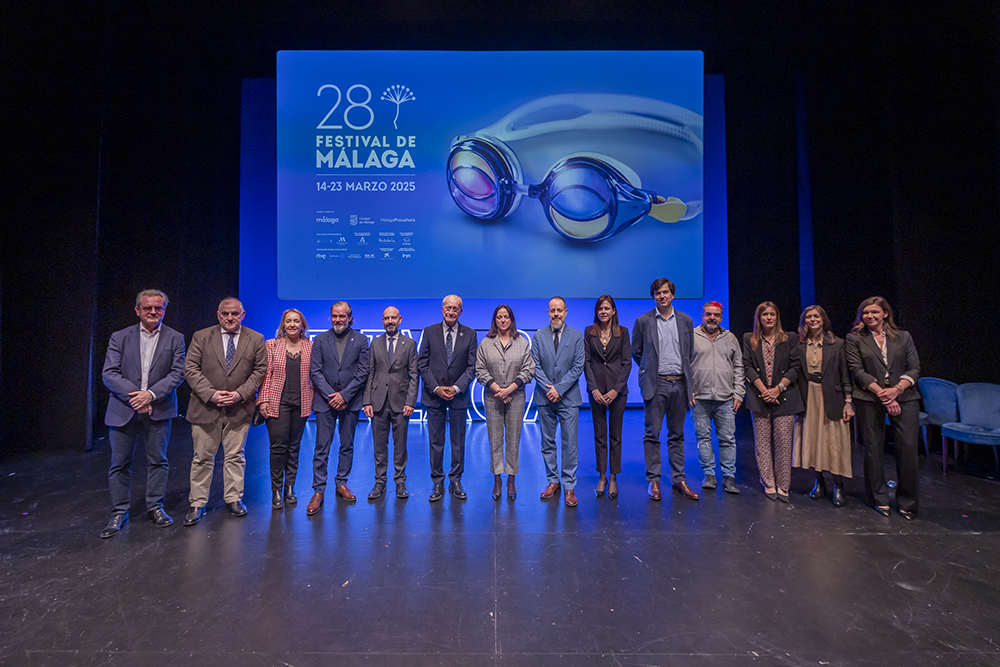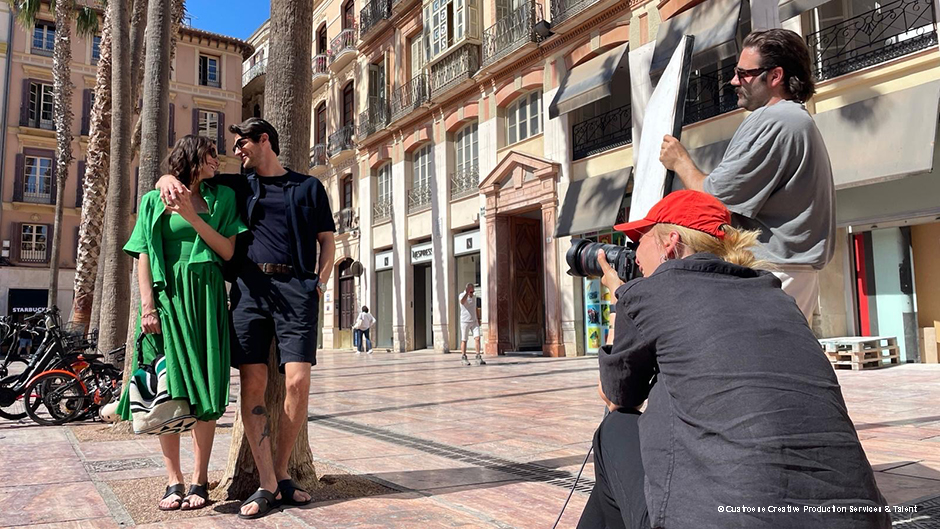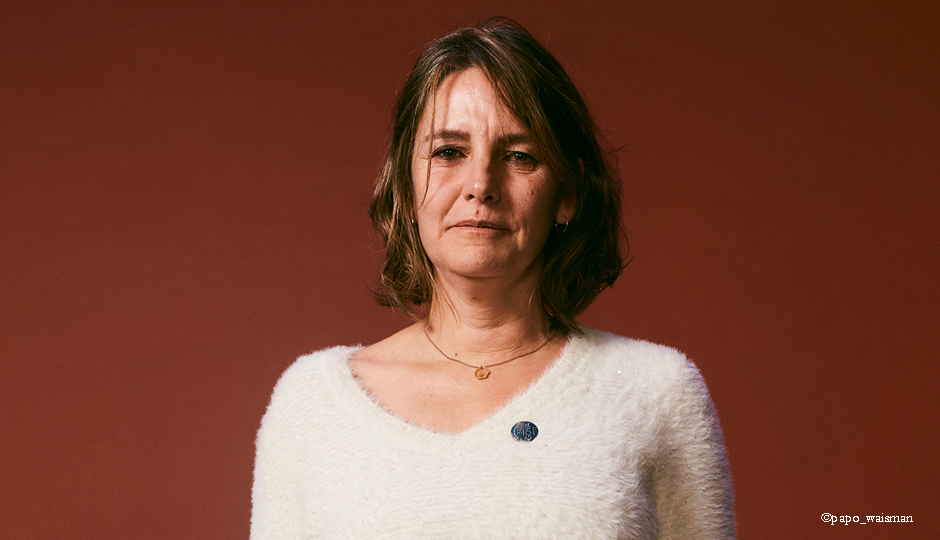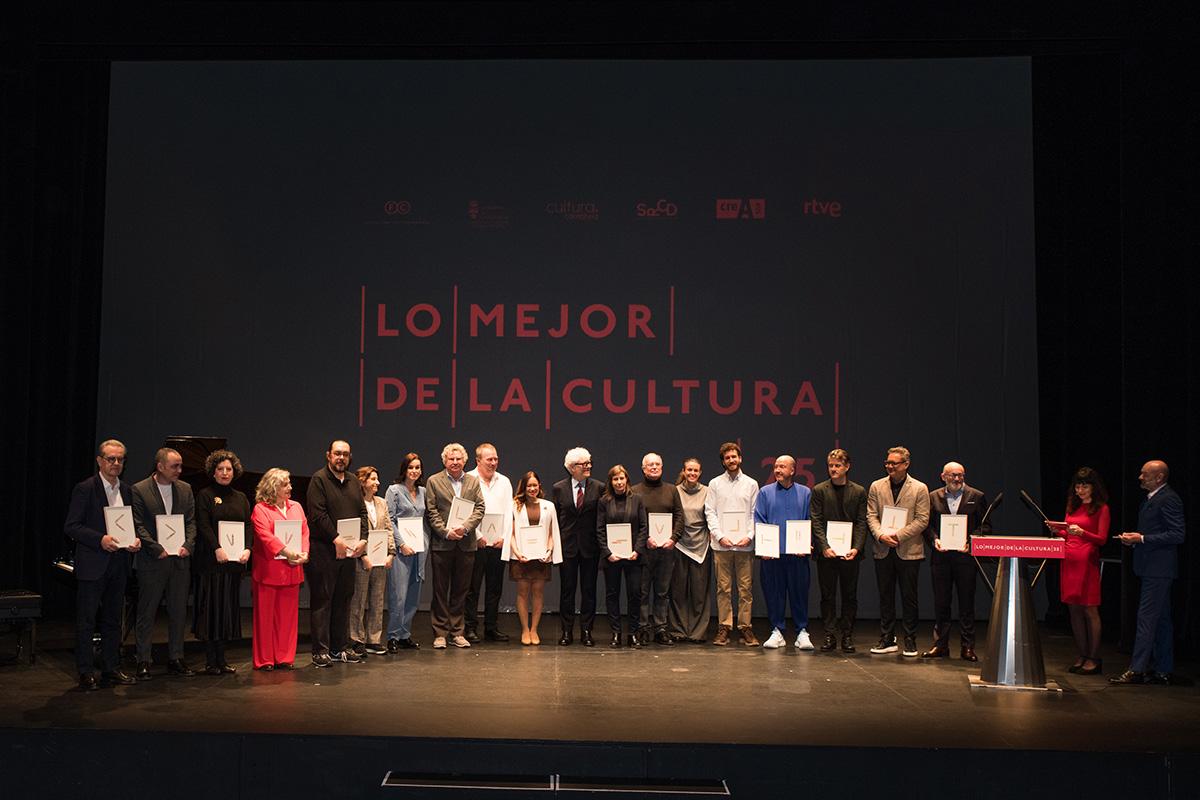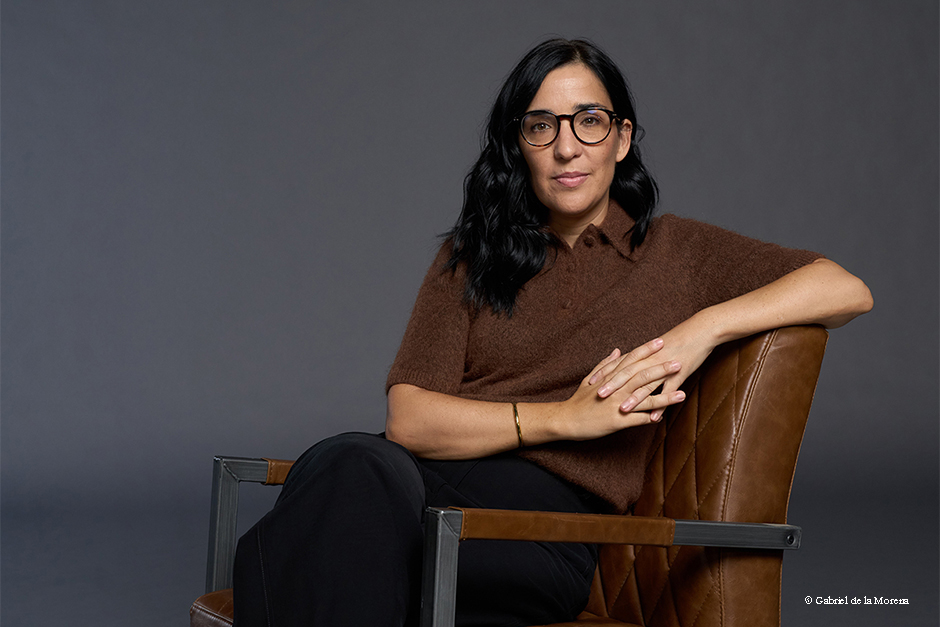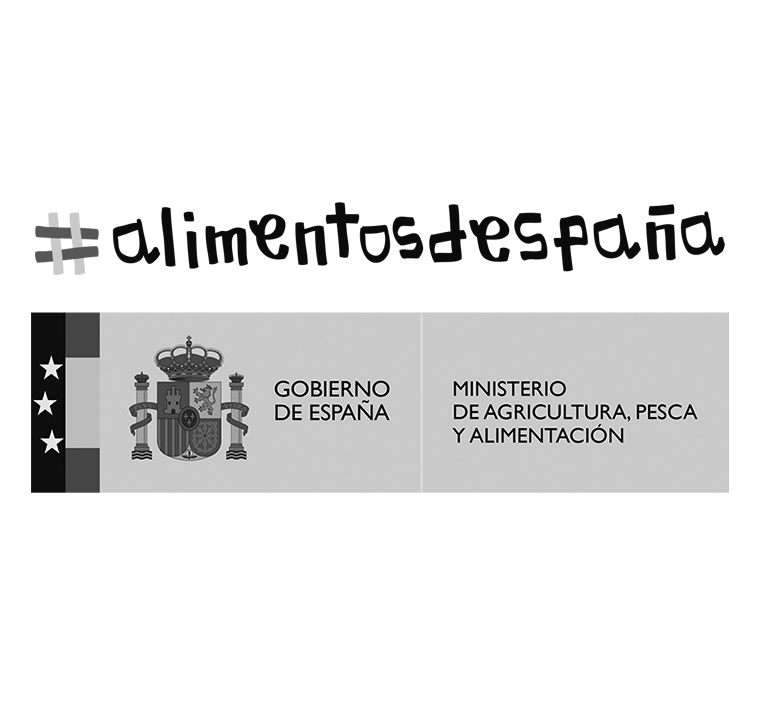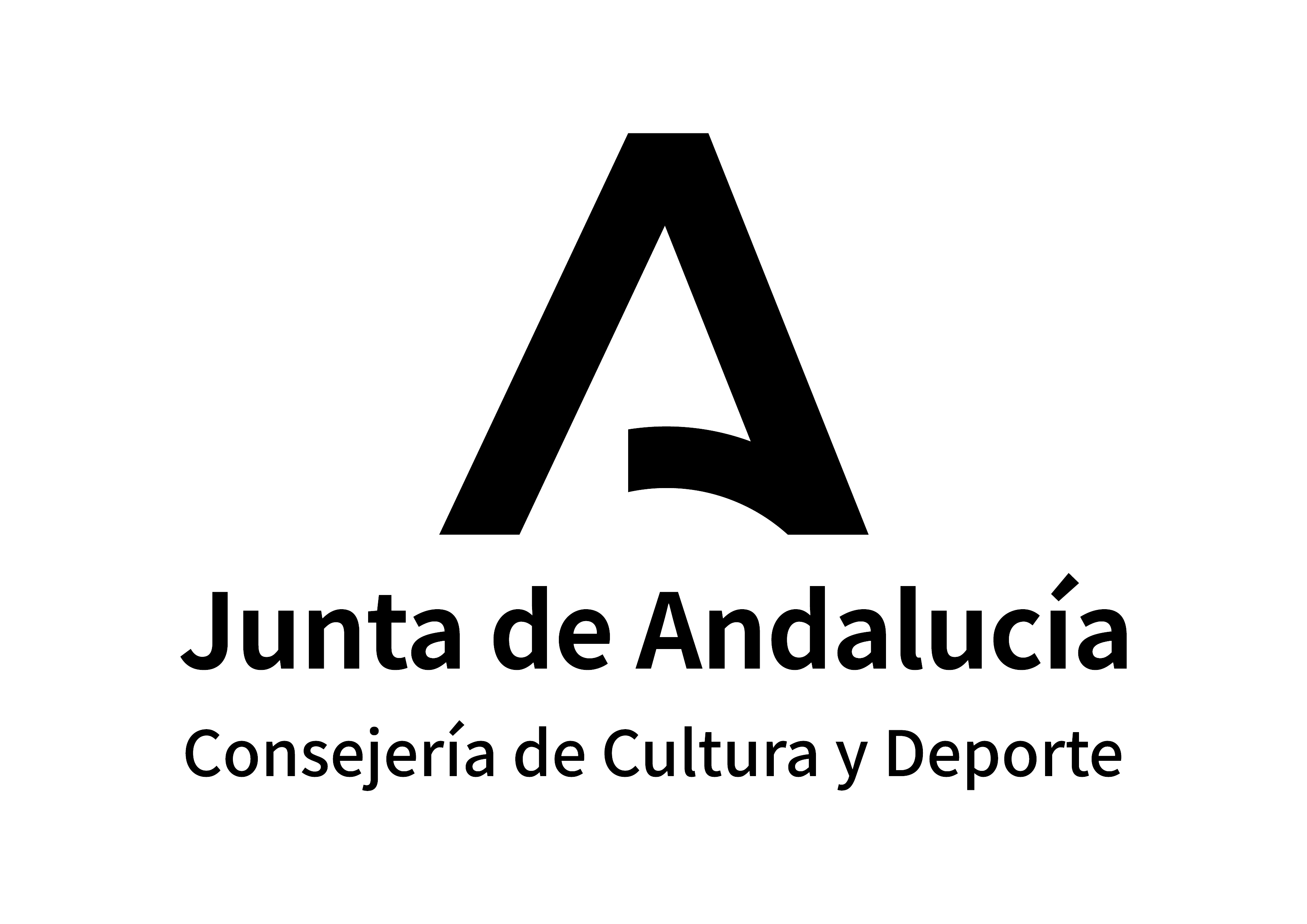The 28th Malaga Festival will screen 260 audiovisuals from the 14th to the 23rd of March and fulfils the aim of getting closer to the sea with a new space
La Villa del Mar, on La Malagueta beach, will be where technology, entertainment, creativity and audiovisuals come together with free activities open to the public
The
Malaga Film Festival will roll out the red carpet for Spanish cinema in its
28th edition, from the
14th to the 23rd of March, with a programme that will include 260 works in all its sections (fiction feature films, documentaries, short films, TV series, etc.) and a wide variety of content and related activities for all audiences in a new space, La Villa del Mar, on La Malagueta beach. The Malaga event will also once again become a meeting point for Spanish-language audiovisual productions in its consolidated MAFIZ Industry area.
The presentation of this edition took place today at the Echegaray Theatre in Malaga. The event, chaired by the Mayor of Malaga,
Francisco de la Torre, was attended by the Deputy Government Delegate in Malaga, Francisco Javier Salas; the Deputy Minister of Tourism and the Foreign Sector of the Andalusian Government,
Víctor González; the Deputy Minister of Culture and Sport of the Andalusian Government,
María Esperanza O’Neill; the Director General of Culture of the Malaga Provincial Council,
Pedro Bosquet; the Councillor for Culture and Historical Heritage of the Malaga City Council,
Mariana Pineda; the Deputy Director of Cinema of the RTVE Corporation,
Gervasio Iglesias; the Director General of Atresmedia Cine, J
aime Ortiz de Artiñano; the territorial manager of Andalusia, Ceuta and Melilla of the “la Caixa” Foundation,
Juan Carlos Barroso; the Commercial Director of CaixaBank in Malaga, Córdoba, Almería, Ceuta and Melilla,
Carmen González Novo; the Head of Communications and External Relations at Cervezas Victoria,
Genoveva Ferragut; the Head of Sponsorship at Repsol,
Ana Bella García; the Editor-in-Chief of Diario Sur,
Ana Pérez-Bryan, and
Juan Antonio Vigar, Manager of Málaga Procultura and Director of the Málaga Festival, as well as representatives of various entities collaborating with the Festival. The Mayor gave thanks to all of them for their significant commitment and support to culture, Malaga and the Festival itself.
Juan Antonio Vigar has outlined the content of this new edition of the Malaga Festival. Regarding
participation, this year a total of 2,745 works has been registered (compared to the 2,557 of the last edition – a 6% increase), for a total of 260 works selected, from 54 countries, which demonstrates the important international positioning of the festival, with a set of titles that are a snapshot of the audiovisual works in Spanish in recent months.
The Festival Director highlighted “
some very interesting data, which provide a snapshot of our festival: 65% of the entries are Spanish, which shows that we are the reference Festival for Spanish cinema. In addition, we have received 822 Latin American works, which reflects the important prestige and our growing position in our fellow Spanish-speaking territories. 9% are co-productions, a faithful reflection of the dynamism of Spanish co-productions (255). Furthermore, a fact that we particularly like is that we are a festival that continues to promote emerging talent, with 33%, that is 904 of entries being first films.”
Vigar highlighted that, of the 2,745 films entered, 977 were
directed by women, 35.5% of the total; while, of those selected, 100 were directed by women, 38.5%, “which represents practically the same average of registered films directed by women, maintaining proportionality and, with it, the already historic commitment to films made by women. Of the 22 feature films in the Official in competition Section, 13 were directed by women, which makes up practically 60% of the total (a figure that is also maintained in the case of films produced by women in this same section), meaning, for the first time in the competition at our festival, women directors outnumber men.”
Content
The
Official Selection In Competition will include 22 films (15 Spanish and 7 Latin American). In addition, there are 21 films (16 Spanish and 5 Latin American) in the Official Selection Out of Competition, including the closing film, which for the first time will be a series, Mariliendre, produced for Atresmedia in collaboration with SUMA Content by Javier Calvo and Javier Ambrossi and whose premiere has caused great expectation.
In addition to the Spanish films already announced are:
La buena letra, by Celia Rico;
La buena suerte, by Gracia Querejeta;
La furia, by Gemma Blasco;
Los tortuga, by Belén Funes;
Sorda, by Eva Libertad,
El cielo de los animales, by Santi Amodeo;
Jone, batzuetan, by Sara Fantova;
La terra negra, by Alberto Morais;
Lo que queda de ti, by Gala Gracia;
Molt Lluny (Muy lejos), by Gerad Oms;
Ruido, by Ingride Santos;
Todo lo que no sé, by Ana Lambarri;
Una quinta portuguesa, by Avelina Prat and
Ravens, by Mark Gill. Finally, as the opening film,
La deuda, the newest work by actor and director Daniel Guzmán.
Along with these, the Latin American films
Culpa cero, by Valeria Bertucelli and Mora Elizalde (Argentina);
El ladrón de perros, by Vinko Tomicic (Bolivia, Chile, Mexico, Ecuador, France and Italy);
El diablo en el camino, by Carlos Armella (Mexico and France);
Nunca fui a Disney, by Matilde Tute Vissani (Argentina);
Perros, by Gerardo Minutti (Uruguay and Argentina);
Sugar Island, by Johanné Gómez (Dominican Republic and Spain) and
Violentas Mariposas, by Adolfo Dávila (Mexico).
In the
Official Selection Out of Competitionare the Spanish films
8, by Julio Medem;
Aullar, by Sergio Siruela;
Faisaien irla (La isla de los fasisanes), by Asier Urbieta;
Hamburgo, by Lino Escalera;
La huella del mal, by Manuel Ríos San Martín;
La niña de la cabra, by Ana Asensio;
Los aitas, by Borja Cobeaga;
Pequeños calvarios, by Javier Polo;
Playa de lobos, by Javier Veiga;
También esto pasará, by María Ripoll;
Tierra de nadie, by Albert Pintó;
Tras el verano, by Yolanda Centeno;
Un año y un día, by Alex San Martín;
Uno Equis Dos, by Alberto Utrera and
Vírgenes, by Álvaro Díaz Lorenzo.
As for the Latin American films out of competition, there are
Lo que quisimos ser, by Alejandro Agresti (Argentina and France) – director of which will be awarded an honorary Biznaga for his entire career -;
Mazel Tov, by Adrián Suar (Argentina);
El casero, by Matías Luchessi (Argentina and Uruguay);
Una muerte silenciosa, by Sebastián Schindel (Argentina) and
Mensaje en una botella, by Gabriel Nesci, also from Argentina.
The
judging panel for the Official Selectionwill be made up of the Argentine actress Mercedes Morán (president); the Spanish actress Irene Escolar; the Spanish director Carlos Marqués-Marcet; the Chilean actress Daniela Vega; the director Pilar Palomero; the actress Belén Cuesta; the singer of the group Vetusta Morla and great film star, Pucho, and the director of the Guadalajara Festival (Mexico), Estrella Araiza.
The Festival will also feature
Zonazine, a 22-year-old promise to new cinema;
Short Films,
Documentaries and
Mosaico: International Scene sections, where there will be eight non-Latin American films that have won significant awards at festivals. It will also feature the Asserting Women’s Rights section, where 11 films have been selected out of the 347 contestants.
In addition to
Mariliendre in the
Series selection (out of competition), the following are also participating:
La canción, created and written by Pepe Coira and Fran Araújo and directed by Alejandro Marín (Movistarplus+ and Buendía Estudios);
Perdiendo el juicio, created by Jaime Olías and Humberto Miró and directed by María Togores and Pablo Guerrero (Atresmedia in collaboration with Boomerang TV) and
Weiss & Morales, directed by Oriol Ferrer and Lucía Estévez from Portocabo, NADCON, and ZDF STUDIOS in collaboration with RTVE and ZDF.
As for the gastronomic selection of the Festival,
Cinema Cocina, in collaboration with Lumen, Producciones Gastronómicas and sponsored by Cervezas Victoria, unpublished Spanish and Latin American feature films and short documentaries are participating. There will be 12 documentaries (7 feature films and 5 short films) from Spain, Mexico, Argentina, France and Portugal, competing for the silver biznagas in this selection, which will also feature the usual round tables and Gala Dinner at the Gran Hotel Miramar.
Technology and culture
This year, as Vigar has already announced on several occasions, the Festival is fulfilling its objective of getting closer to the sea. It will do so with
La Villa del Mar, a space on La Malagueta beach
in collaboration with Polo Digital to show the links, projects and synergies between the audiovisual and cultural industry and the technologies that are changing it day by day. La Villa del Mar is the space for innovation, technology and new trends at the Malaga Festival, a meeting point where entertainment, technology, creativity and sustainability come together with the audiovisual world.
In a versatile and dynamic environment, Villa del Mar will host
workshops, brand activations, immersive experiences, networking and conferences from the 15th to the 22nd of March, offering an ideal showcase for companies and creators looking to connect with the future of entertainment. Villa del Mar will be open to professionals and the general public and will host free open-air concerts.
At these
open-air concerts on Malagueta beach, next to the Antonio Martín restaurant, and sponsored by Repsol, we will have Celia Flores (1:00 p.m.) and Alonso (5:00 p.m.) on Saturday the 15th; Lito Blues Band (1:00 p.m.) and Cristalino (5:00 p.m.) on Sunday the 16th; El Zurdo (1:00 p.m.) and Tonia Rodríguez (5:00 p.m.) on Monday the 17th; Dan Shiva (1:00 p.m.) and Soul Station (5:00 p.m.) on Tuesday the 18th and on Wednesday 19th, Amajazz (1:00 p.m.) and a surprise in the afternoon that is to be announced.
Juan Antonio Vigar also highlighted a strategic project for the Festival,
the MAFIZ Industry area, made up of events that promote the financing, co-production, distribution and sale of Spanish-language films, all of this through the support and promotion of new Ibero-American audiovisual talent, which is considered an overall objective for this broad industrial area.
The Spanish Screenings Content, an audiovisual market, stands out in the Industry area, which is being held from the 18th to the 20th of March thanks to the support of the Ministry of Culture through the ICAA and the ICEX and in collaboration with the San Sebastián Festival.
In addition, Latinamerican Focus, the bilateral co-production forum, will make the
Dominican Republic its protagonist this year, the Country of Honour of the 28th edition. And the Territories section, dedicated to the production of our autonomous communities,
Murcia, an autonomous community of reference in this section, will occupy a preferential place.
Tributes, publications, and concerts
As for the tributes, the
Málaga-Sur Award will go to the actress
Carmen Machi; the
Ricardo Franco-Academia de Cine Award will go to screenwriter
Lola Salvador; the
Málaga Talent-La Opinión de Málaga Award will go to
Elena Martín Gimeno; the
Retrospectiva-Málaga Hoy Award will go to Argentine actor
Alejandro Agresti and the
Biznaga Ciudad de Paraíso Award, for essential figures in Spanish cinema, will go to
María Luisa San José. In addition, the Festival will deliver the Honorary Biznaga Award to
Alejandro Agresti and, like every year, will host the presentation of the
Canal Sur Andalusian Talent Award, whose winner is to be announced shortly.
The Golden Film of the 28th Malaga Film Festival will be
Poachers, directed in 1975 by José Luis Borau, marking the 50th anniversary of its premiere. A tribute shared with the San Sebastian Film Festival, which will also remember this film in its Klasikoak section. This film can be seen in a remake thanks to Videomercury and Flix Olé. For this occasion and in collaboration with Filmoteca Española and DAMA, the Festival will publish the book
Furtivos. 50 años, written by Carlos Heredero.
The Festival will once again have two sections framed within its objective of recovering Spanish film heritage:
Labotella del tiempo and
Underground andaluz, the latter curated by Alberto Rodríguez.
Once again, the Plaza de la Merced will have the
Espacio Solidario, organised by the Festival with the
Department of Social Rights, Equality, Accessibility and Inclusive Policies of the Málaga City Council in collaboration with the
“La Caixa” Foundation and whose objective is to open the Festival to different social groups and promote their inclusion.
For the second year, we will have a cycle in the extended programming of the MaF,
Neópolis, which will bring together six activities with which we will connect the audiovisual arts with science and technology.
Vigar has also given a small glimpse in to the two great
galas of the Festival. The opening will be presented by
Bárbara Lennie and the closing by the journalist
Elena Sánchez and the actor
Salva Reina.
The Festival will conclude on Sunday the 23rd with the traditional
film marathon at the Albéniz Cinema featuring the winning films.
‘Con voz propia’, the names of Spanish and Latin American cinema, at CaixaForum+
CaixaForum+, in collaboration with the Malaga Film Festival, is offering
Con voz propia, a series of interviews with renowned professionals from Spanish and Latin American cinema who were honoured in previous editions of the festival. There are 27 pieces in which one or more of these protagonists talk about their careers, cinema, the teams that make the films possible, etc, as well as a master class by the Mexican filmmaker Guillermo del Toro.
Among the interviews, a very special one is that of the filmmaker Carlos Saura, who reviews his professional life and reflects on it and on his career. Other protagonists of
Con voz propia are highly recognised actors such as Javier Cámara, Antonio de la Torre, Javier Gutiérrez, Blanca Portillo, Fiorella Faltoyano, Julia Gutiérrez Caba, Mónica Randall, Petra Martínez, Paz Vega, Paco León and Raúl Arévalo. These last three have also featured behind the camera. And with a Latin American accent, the actresses Cecilia Roth and Mercedes Morán.
There are interviews with the directors Alberto Rodríguez, Alejandro Amenábar, Carla Simón, Javier Calvo and Javier Ambrossi, Mariano Barroso, Oliver Laxe, Gracia Querejeta, Rodrigo Sorogoyen, Juan Antonio Bayona, all currently involved in new projects, and the Argentine Marcelo Piñeyro.
The series does not forget other great professionals, essential in the creation of the films, such as the editor Teresa Font, the scriptwriter Rafael Cobos, the art director and costume designer Ana Alvargonzález, the costume designer Paco Delgado and the make-up artist Sylvie Imbert.
Tickets for the 28th Malaga Film Festival
Tickets, including those for the opening and closing galas, will both go on sale
tomorrow, Wednesday the 26th of February at 9:00 am at the box office and online. They can be purchased through the
Festival website, where the information about the programme is also available, and at
www.unientradas.es. At the box office, they will be on sale at Teatro Cervantes, Teatro Echegaray and Cine Albéniz.









